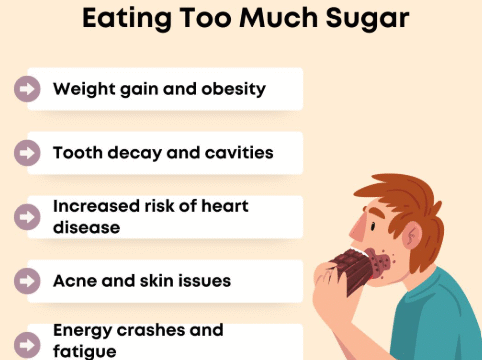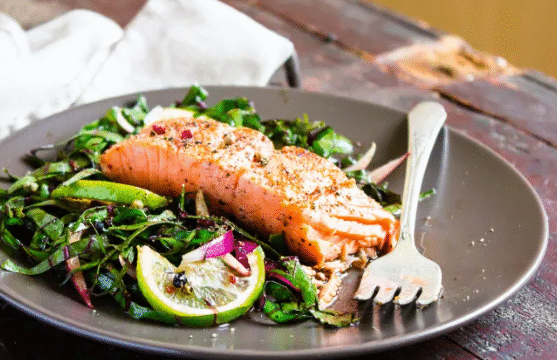Building healthy goals that turn into daily fitness wins is one of the most rewarding ways to approach personal wellness. Fitness becomes less about chasing perfection and more about celebrating small, meaningful steps that add up over time. When goals are set with care and patience, they become manageable, enjoyable, and part of your daily rhythm. Instead of striving for overnight transformations, you begin to appreciate consistent progress—the kind that makes you feel stronger, happier, and more confident every day.
The most successful fitness goals are those that feel realistic. A healthy goal does not overwhelm you with pressure; it supports your current lifestyle while gently guiding you toward improvement. It’s easy to get caught up in grand plans, but the truth is that small, steady habits make the greatest difference. Something as simple as committing to stretch for a few minutes each morning, take a walk after lunch, or drink more water can create noticeable changes in your energy and mood. These daily actions may seem minor, but they gradually build a stronger foundation for long-term success.
Consistency is what turns goals into wins. When you repeat an action often enough, it becomes part of your routine rather than something you have to force yourself to do. For example, if you begin each day with ten minutes of movement, soon your body will start to look forward to it. The act itself transforms from a task into a habit, and that habit becomes a symbol of progress. Over time, consistent effort strengthens your discipline and helps you approach larger challenges with confidence.
Healthy goals also focus on how you feel rather than how fast you achieve results. Fitness is not only about appearance or performance—it’s about balance, energy, and well-being. When you set goals that improve how your body feels, you develop a more sustainable and enjoyable relationship with movement. You start to move not because you have to, but because it makes you feel good. This sense of satisfaction creates daily wins that encourage you to keep going even when motivation fluctuates.
It’s important to make goals flexible. Life is full of changes—busy days, unexpected events, and shifting priorities. If your goals are too rigid, they can quickly become stressful. But if they’re adaptable, they’ll fit more naturally into your daily life. On days when you feel tired or short on time, you can modify your workout rather than skip it entirely. Even five minutes of stretching or a quick walk can count as progress. This flexibility builds confidence because it reminds you that success doesn’t depend on perfection—it depends on effort and intention.
Healthy fitness goals also include rest and recovery. Many people overlook the importance of giving the body time to recharge. Rest is not a sign of weakness; it’s an essential part of growth. When you take time to rest, your muscles repair, your mind resets, and your motivation returns stronger. Balancing activity and recovery ensures that your daily wins continue without burnout. Recognizing rest as part of your fitness journey helps you maintain a steady rhythm that supports your health long-term.
Another key part of turning goals into daily wins is finding joy in movement. The best exercise for you is the one you genuinely enjoy. Whether it’s dancing, swimming, cycling, yoga, or brisk walking, movement that brings happiness will keep you consistent. When you love what you’re doing, exercise feels like a reward instead of an obligation. Joyful movement transforms your perspective—you start to look forward to your workouts, and your positive energy spills into other parts of your life.
Healthy goals also involve setting intentions that are specific but gentle. Instead of saying “I want to get fit,” you might say, “I want to move for 20 minutes each day” or “I want to feel more energized this week.” These smaller, clearer intentions make success measurable and satisfying. When you reach them, you experience a sense of accomplishment that fuels further effort. Over time, these simple wins accumulate into noticeable progress—physically, mentally, and emotionally.
Tracking your progress can also make your daily fitness wins more meaningful. You don’t need to rely on complex tools—a journal, calendar, or simple checklist can do wonders. Writing down your efforts, even briefly, helps you see how much you’ve done. It creates a sense of accountability and reminds you that every effort counts. When you look back after a few weeks or months, you’ll see just how far you’ve come, which boosts confidence and keeps motivation alive.
Mindset plays a powerful role in this process. Healthy goals grow from positive thinking. When you approach your fitness journey with patience and kindness, you are more likely to stay consistent. Instead of focusing on what you haven’t done, you can focus on what you have achieved. A simple mindset shift from “I have to work out” to “I get to move my body today” turns effort into gratitude. This positive energy transforms every small action into a daily win, reinforcing your progress in ways that feel encouraging rather than demanding.
Celebrating your achievements—no matter how small—is another essential part of healthy goal setting. Every time you complete a workout, choose a balanced meal, or simply take a few moments to stretch, you are making progress. Acknowledging these moments strengthens your motivation and reminds you that each step matters. You might reward yourself with a relaxing activity, a favorite meal, or simply the satisfaction of knowing you’ve followed through on your commitment.
Another benefit of setting healthy goals is that they influence other areas of life. When you start your day with movement or end it with relaxation, you may notice improved focus, better sleep, and a more positive mood. These are the hidden wins that come with consistency. Fitness goals do more than shape the body—they shape your habits, mindset, and resilience. You begin to carry the same discipline into work, relationships, and personal growth, creating balance in your daily routine.
It can also be motivating to share your journey with others. Talking about your goals with friends or joining a supportive community adds accountability and encouragement. Sharing small victories, learning from others, or simply moving together can bring joy and connection to your fitness routine. A supportive environment helps you stay inspired, especially on days when motivation feels low. Surrounding yourself with positivity keeps your goals alive and rewarding.
Healthy goals also grow stronger through reflection. Taking time to pause and think about what’s working or what needs adjustment helps you stay aligned with your values. If a goal feels too challenging, breaking it down into smaller steps can make it more achievable. Reflection helps you understand that goals are not fixed—they can evolve with you. What matters most is maintaining progress at your own pace, guided by self-awareness and compassion.
Over time, the small daily wins that come from your healthy goals will begin to feel natural. They no longer require as much effort or discipline because they’ve become part of who you are. You’ll notice that movement, mindfulness, and care for your body become instinctive. This transformation is the true reward—it shows that you’ve built a sustainable relationship with your health that supports you in every area of life.
In the end, healthy goals that turn into daily fitness wins are about more than exercise. They are about living with purpose, balance, and consistency. Each small action is a step toward long-term wellness. The real success lies not in reaching a finish line but in enjoying the journey, one day at a time. With patience, self-kindness, and steady effort, every goal you set can bring you closer to a stronger, more confident version of yourself—one that grows through every win, no matter how small.
Would you like me to make a search-optimized version of this article with SEO keywords, meta description, and AdSense-safe title for publishing?






